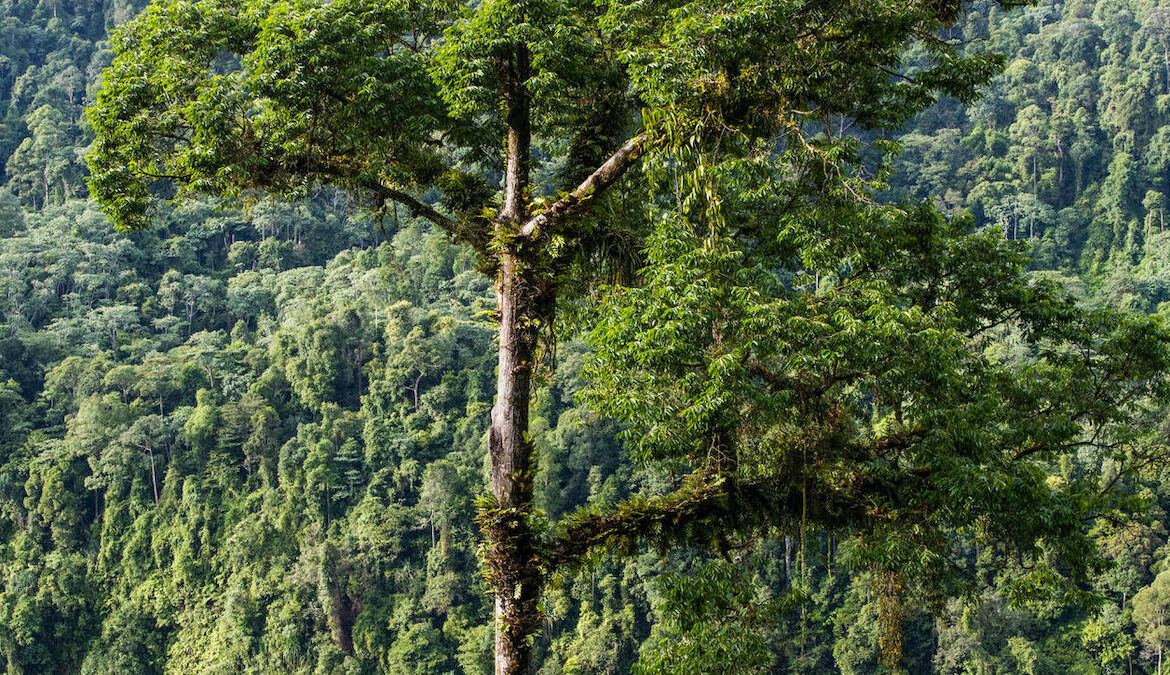House of Anita Dongre, has become India’s first fashion label to sign up to Canadian-headquartered environmental organisation Canopy’s CanopyStyle and Pack4Good initiatives.
Canopy is committed to protecting the world’s Ancient and Endangered Forests and ensuring they continue to grow. Its CanopyStyle and Pack4Good initiatives aim to transform fashion and packaging supply chains by helping them source more sustainability and become advocates for forest conservation.
“Fashion is not just about what’s next but also what’s good – for the maker, for the wearer and for the planet,” explains Anita Dongre, chief creative officer of the brand bearing her name.
“Protecting the world’s forests is the need of the hour and hence we are partnering alongside Canopy to help conserve the world’s forests and build supply chains that have the health of our planet at their heart.”
Canopy says that every year more than 3.2 billion trees – many from vital forest ecosystems in places like Brazil, India, Canada, and Indonesia – are cut down to make packaging, shipping boxes, and fabrics such as viscose and rayon. Forests, a critical shield against climate change, are under intensifying pressure as demand for packaging and man-made cellulosic fibres – like viscose/modal/lyocell – aggressively grow.

“We are working on systems change, so if enough fashion brands are demanding that none of their viscose is sourced from ancient and endangered forests – and that they intend to shift toward using alternative, non-forest sourced viscose – their suppliers will respond by providing them that type of forest-friendly product,” a Canopy spokesperson told Viable Earth.
How House of Anita Dongre breaks the mould
Mumbai-based House of Anita Dongre – whose designs are sought out by Bollywood stars and international celebrities – has broken the mould in India’s fashion sector for more than 20 years, embracing inclusivity in its sizes and adopting sustainable practices throughout its business.
In a sustainability statement, House of Anita Dongre describes its signing up to Canopy’s program as creating “a lens of consciousness” over all of its business practices and policies, continuously reviewing its actions to ensure they are eco-friendly, meeting inhouse goals of energy consumption and carbon efficiency and repurposing resources.
“With every step, we are taking strides towards our sustainability goal of committing to sourcing raw materials, specifically the fibres for our man-made cellulosic fabrics, paper and paper-based packaging in a manner that protects the world’s forests.”
The policy covers all of the group’s brands, which include And, And Girl, Global Desi, Global Desi Girl, Anita Dongre, Grassroots, and Pinkcity.

The company will work with Canopy and its suppliers to support solutions that protect the remaining ancient and endangered forests in the Coastal Temperate Rainforests on Vancouver Island and the Great Bear Rainforest, Canada’s Boreal Forests, and Indonesia’s Rainforests.
The group promises to assess its existing use of man-made cellulosic, packaging and paper and eliminate sourcing from endangered species habitat and ancient and endangered forests such as the Canadian and Russian Boreal Forests, Coastal Temperate Rainforests; tropical forests and peatlands of Indonesia, the Amazon and West Africa by next year.
Other commitments include working to eliminate sourcing from companies that are logging forests illegally, tree plantations established after 1994 through the conversion or simplification of natural forests, or areas being logged in contravention of First Nations/tribal/indigenous peoples’ and community rights or from other controversial suppliers.
If the company discovers any of its products are sourced from ancient and endangered forests, endangered species habitat or illegal logging, House of Anita Dongre will engage with them to change practices and/or re-evaluate the relationship.
During the next three years, House of Anita Dongre will source or design re-usable/refillable shipping boxes to reduce corrugated paper and paperboard from its chain, design and implement e-commerce, shipping, display and wrapping systems that minimise the use of paper, use reusable packaging systems for intra business applications, increase its use of digital communication, marketing and accounting systems and adopt best practices, including researching and applying emerging and circular economy innovations.
The company has already replaced all non-certified virgin paper to FSC standard paper, and recycled paper for its tags, paper bags, gift wrapping paper and butter paper. All of its corrugated boxes are made of 80-per-cent recycled pulp paper.
India well-placed for next-gen solutions
Meanwhile, Canopy believes that given the 92 million tonnes of waste straw left over every year after the food harvest – and millions of tonnes of textile waste – India is well-positioned to be a leader in bringing next-generation solutions “from the corner of the marketplace to mainstream production”.
The organisation’s deep expertise in forest conservation and supply chain transformation position it as a central player in the transition to circular economy production.
“This is the turn-around decade to address the biodiversity and climate crises before us and to change global supply chains to operate within the bounds of our natural world,” said Nicole Rycroft, Canopy’s founder and executive director.
“House of Anita Dongre models the compassion and innovative spirit that business, civil society, and political leaders need to bring at this key juncture. We’re excited to be working with Anita and her team to build the solutions that we so desperately need.”



